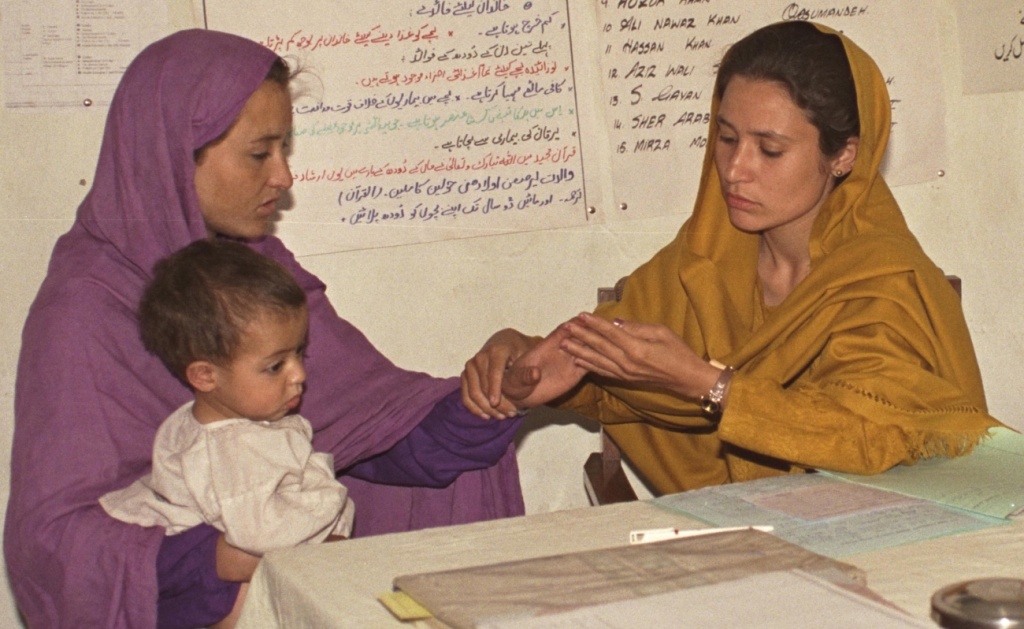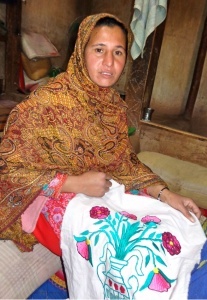Our concluding installment in A Day in the Life of Our Communities comes in an evening gathering of a women’s savings group in Pakistan.

A nurse in Chitral examines a mother who holds a young child on her knee. Pre-natal care is an important aspect of healthcare.
In the remote mountains of Pakistan’s northern Chitral district, women and children are especially vulnerable to health risks and challenges. Fewer than 1 in 7 births in Chitral are attended by a doctor or nurse. Many women who suffer complications during childbirth die on the long trip to get clinical help.
For four years the Aga Khan Foundation U.S.A. has trained and supported community midwives, creating an enabling environment so they can practice their new skills in their mountain communities. The Chitral Child Survival Program, begun in 2008 with funding from the U.S. Agency for International Development, has trained community midwives and established them in dozens of remote communities to reduce the Chitral region’s high levels of mother and child mortality. After just over one year back in their home villages, the midwives were already having an impact: a 2012 survey showed increased use of health services, including a dramatic rise in continuum of care.
Along with supplying much needed health services, the project works to make those services sustainable in the long run, by helping the midwives get on a professional footing and by supporting communities’ ability to handle their financial needs. The program has fostered nearly 400 community-based savings groups that help poor families save and pay for health emergencies or other unexpected expenses. The groups also raise the profile of the community midwives.

Bibi Noshad with her embroidery work.
When 37-year-old Bibi Noshad was first invited to join the savings group near her, she didn’t think too seriously about it, she says. “But when I saw the benefits other women in the village were getting from it, I joined it as well.”
Bibi’s family of 11 relied on her husband’s income as a security guard, which Bibi supplemented with tailoring and embroidery jobs. She saw that she could increase that cash with an embroidery machine. The problem: it would cost over $100, much more than she could afford.
So after she joined the savings group, she requested a loan to cover 60 percent of the machine’s cost; the rest came from savings that she scraped together.
Now Bibi’s embroidery work goes much faster, she earns more money, and she pays her share of the savings group fee with cash from the jobs. When her family had to pay an unexpected legal fee, she took a second loan.
The savings group helped Bibi at a crucial time, and she’s glad she joined. She has repaid her first loan and attends every meeting. Eventually she wants to take another loan and open her own store.
Bibi’s community savings group gives her access to resources for handling emergencies that may come up, and for growing her potential. At the end of the day, that gives her peace of mind.